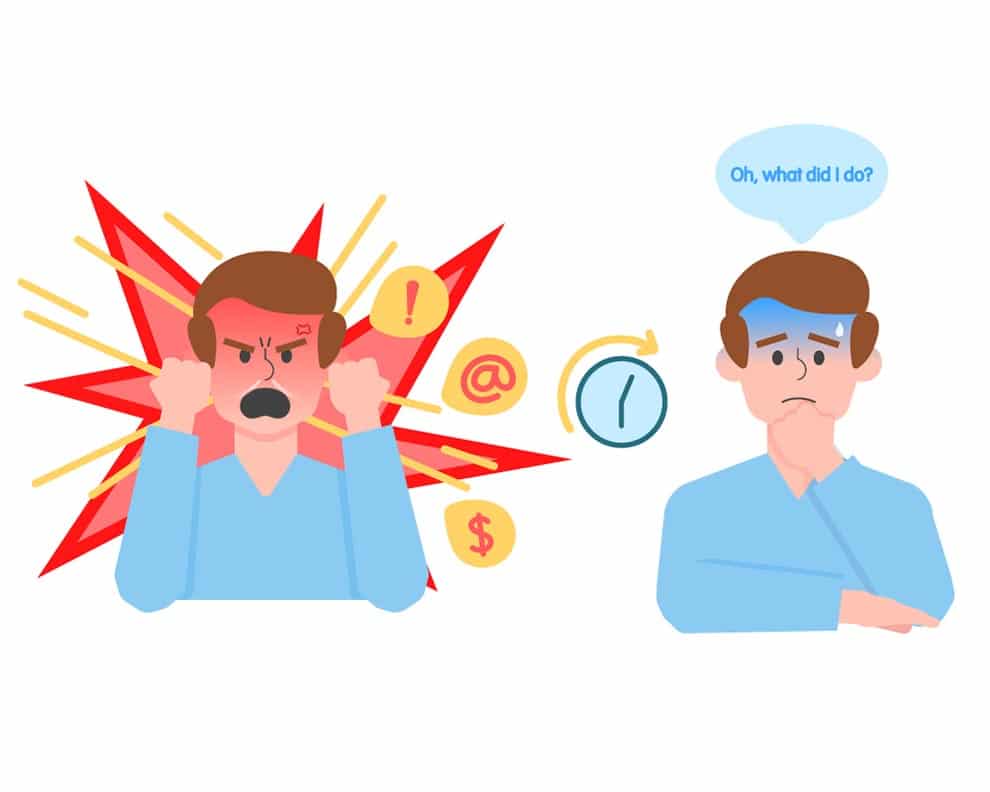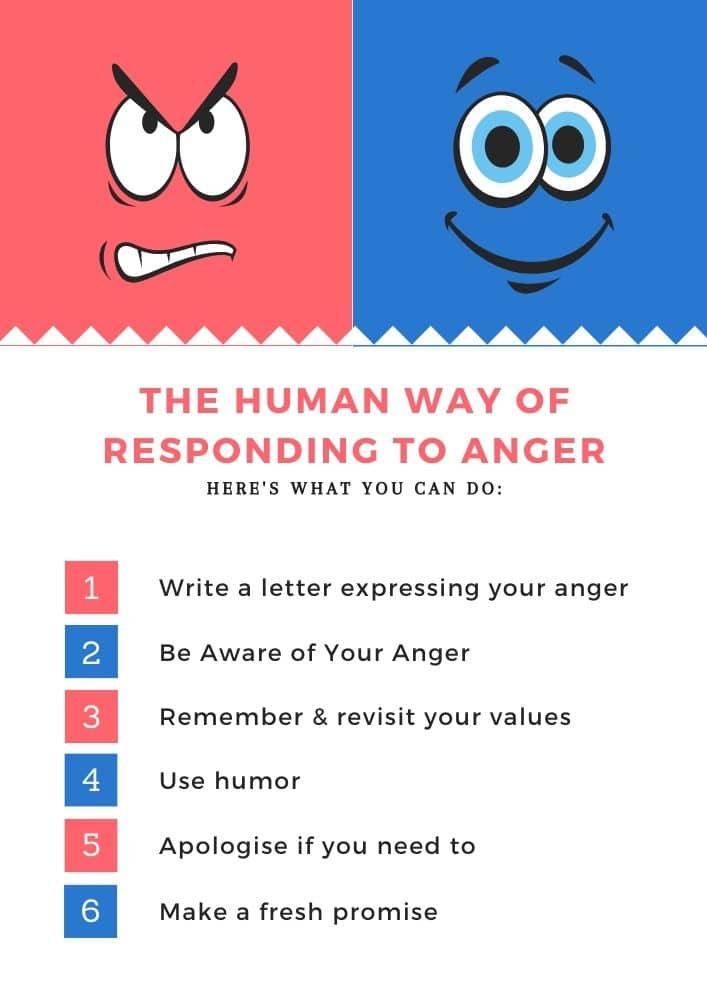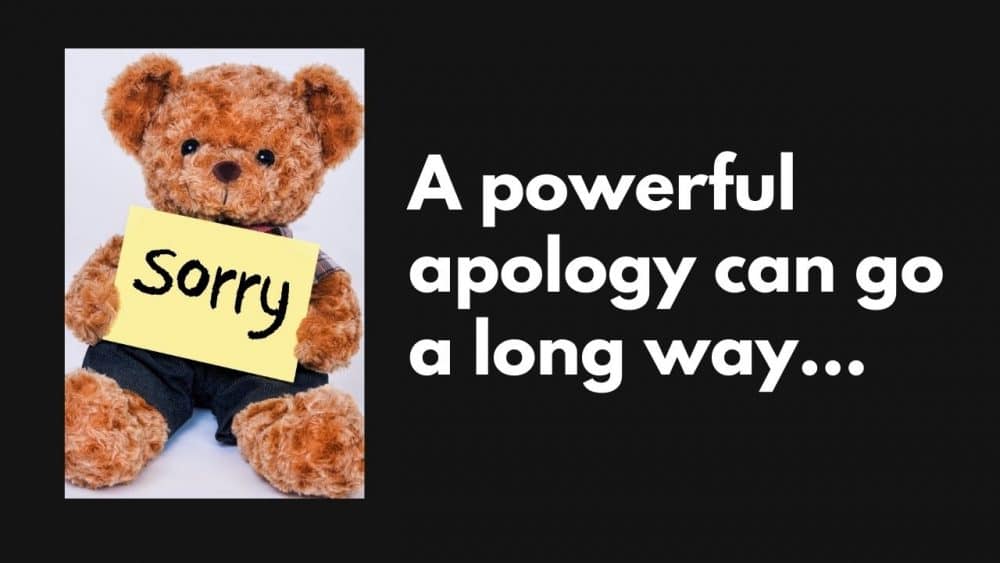In my previous article on anger, we saw that anger hides what we care about. If we look deeper and take the time to introspect, anger can tell us what we really value, and which value has been violated that resulted in the anger. Anger can communicate a lot of important information, but only if we are willing to listen.
Can you control the emotion of anger? NO. Can you control how you respond to it? YES
Life is unpredictable, and you can’t stop yourself from getting angry or frustrated at times, but can you control how you respond to it?
Do you think you can’t control your reaction when angry?
The truth is that anger is not the culprit behind this feeling of helplessness. It is our inability to understand and handle it. We banish anger and put a leash around it – by terming it as wrong, immoral, bad to talk about, bad to feel, etc. Rarely do we educate ourselves and our children about what anger really is and how to deal with it.
Anger has a lot of energy, and it is up to us to use it destructively or productively. We can allow anger to reveal the love and care beneath it. We can allow anger to strengthen ourselves and our relationships. To do this we have to be willing to be vulnerable and listen to our anger. And there is a lot of power in that vulnerability.
“Remember not only to say the right thing in the right place, but far more difficult still, to leave unsaid the wrong thing at the tempting moment.”
― Benjamin Franklin
The Primitive Way of Responding To Anger
There are 2 primitive ways of responding to anger:-
1. Suppression
People respond to anger in different ways. You can suppress it, try to hide it, or you can just go silent and not say anything. If you do that, it leads to stress, bad health and can be the cause of major diseases in the future. And suppression never really works because people around us can see we are angry or frustrated. People close to us can always see through our masks. When we suppress our anger and other emotions, we lose the vitality of life. Suppressing anger is like drinking poison and then expecting somebody else will die. Even if we can suppress anger very well, it keeps on building inside us and will end up in an explosion sooner or later. The more we suppress the bigger the explosion will be.
2. Explosion
The second way people react to anger is by exploding and causing a lot of damage. The damage can be to yourself, to the people around you, and to your relationships. When you explode in anger, you can lose control and get carried away. And an out of control human being is a very dangerous thing. In such a situation, we often end up doing something which we regret later. This could range from saying harsh words to using physical violence to harm ourselves or others.

The Human Way of Responding To Anger
We may be primates, but we need not be primitive. One thing that separates our species from other animals is that we can choose our response despite our circumstances. We, as human beings, have the capability to go beyond our impulsive emotional reaction to choose a reaction that suits our long term needs better. The primitive way of reacting to anger does give a short term instant gratification, but it can cause long term damage.
The perfect way to express anger is to express it according to our values, and it is also the key to releasing the positive energy of anger. The earlier we can express our anger, the less damaging it will be – for us and the people around us. You can’t always control if something will irritate and frustrate you, but you can always control how you respond to it. Don’t focus on what made you angry, focus on how you want to react. Let’s see how can we do that.
1. Controlled Explosions
To manage our anger better, we can have mini controlled explosions. Just like bomb squads do controlled explosions to limit the damage of an unexploded bomb, we can express our rage by shouting or screaming in private. We can write a letter where we can express our anger and vent out everything we are keeping bottled inside us. Obviously, we should never send this letter, and it makes sense to just destroy it afterward. Just the act of writing what you feel will make you feel better. These are not perfect solutions, they can still help us to defuse an otherwise alarming situation.
2. In The Heat of The Moment – Be Aware of Your Anger
What we can do in the heat of the moment is to be aware of our anger and not get sucked into reacting impulsively. We can focus on our breathing, and on what is happening in our body because of the anger. There are often physical symptoms of anger like a racing heart, and being present to these changes can help reduce them. You always have the power to choose how to respond to anger, and you do that by being present to and taking control of what is happening in your body.

One way of being aware of what is going on in your body without reacting is to detach ourselves from the situation. You can take a break from whatever you are doing – take a walk and get yourself moving. If you’re inside a building, try to get outside and get some fresh air. Within a few minutes, you will start to feel better. Moving our body physically reduces stress and the level of the stress hormone – cortisol. It has been clinically proven that exercise improves not just our bodily metabolism, but also our spirits. A little exercise can prevent things from going outside of your control.
3. What To Do When You Have Calmed Down?
Every now and then it is important to remember and revisit our values. As they will determine how you want to act in the face of anger. A good question to ask yourself is – How do you want to act in anger so that you don’t regret it later on?
We can learn to communicate and express our anger in a way we can be proud of. We can do that by not jumping to conclusions when our emotions are triggered. Research has proven that we don’t make good decisions when we are angry or in a heightened emotional state. Hence, it would be prudent not to believe what comes to our mind in such a state. We can make better decisions by slowing down, sleeping over it, and giving it time before making any life-changing decisions.
“Speak when you are angry and you will make the best speech you will ever regret.”
― Ambrose Bierce
Once we are calmer, we can listen to what others have to say without getting defensive. Everyone is entitled to their point of view, no matter how different it is from ours. It is very important to let others make their own choices, and not force our opinions on them. When you do that, people naturally tend to push back creating further friction and frustration.
To make the most of the energy present in anger, we should remind ourselves of our values and seek win-win solutions together with people. Commit to finding a mutually agreeable solution rather than winning your argument and proving yourself right. At such moments, it is important to work with people, not against each other. Even if you prove yourself right or win an argument, give others an opportunity to save face.
Don’t embarrass or humiliate people even when you know you’re right. Seek solutions where two plus two become five, where the sum is greater than the sum of the parts.
4. Using Humor
Humor is another way to defuse anger. The more you suppress or hide anger, the stronger it gets on the inside. Humor can help you look at a situation lightly, and help others relax too. The humor that comes out of deep emotional suffering can help you build connections with people. Humor loosens the grip of anger on our bodies and brings a smile to our face, which can be seen as diametrically opposite of anger.
Humor allows us to see the big picture and the comedy in life. While life can be and is often painful, humor can prevent us from taking ourselves too seriously. Most stand-up comedians know this well, and that is they joke about our biggest challenges and problems. Laughing at a problem or a tough situation not only heals our bodies and souls but also empowers us for the future. Humor gives you power over your anger, instead of letting your anger have all the power.
The best type of humor is self-deprecating humor. Don’t take yourself too seriously. Anger can hide our blind spots, which when seen from a different perspective, can make you laugh. And above all, it feels a lot better to laugh than to hate and cuss.
“Anger is an acid that can do more harm to the vessel in which it is stored than to anything on which it is poured.”
― Mark Twain
What To Do If Damage Has Already Been Done?
Sometimes we can’t stop ourselves from venting in anger, and it is already too late for the above steps. In that case, it is important to apologize and fix the damage – as soon as we can see it.
A Powerful Apology
A powerful apology is sincere, responsible, and makes amends for the future. You express your apology by saying what are you sorry for. Clearly state what happened and how you reacted to anger. Take full responsibility for what you did without blaming anyone else, the situation, or the emotion. It’s very powerful, though not easy, to say, “There’s no excuse for my behavior, and I take full responsibility for how I acted.” However, do it only if you can do it sincerely. There is nothing more offending than an insincere apology. If you are still holding a grudge, it can further damage the relationship.
Once you have apologized sincerely, give the other person the choice to accept your apology or not. Be patient. You can never force an apology onto others. People might take time to come around and trust you again. Or they never might. Be ok with it. Own what you did and its consequences.
The last step is to make a fresh and sincere promise to make amends. What will you do differently the next time? How will you clean up the mess caused by your anger? It is often a good idea to ask the offended person what you can do to undo the damage. Make a sincere promise and then live up to it. You will lose trust if you mess up again. People are often willing to give everyone a second chance. But a third chance is rare.
In conclusion, anger can be poetically beautiful if we can see its value. Anger is an emotion that connects us all. Its what makes us human and everyone gets angry at one point or another. We can learn to see the lighter side of it, laugh over our mistakes, and learn from them. At the same time, it is important to realize that anger is just another natural human emotion and we should not beat ourselves over it. Instead, if we can make a powerful apology and live up to our promises, it can be a wonderful opportunity to use the energy of anger to strengthen your relationships and to set an example for others to follow.



Trackbacks/Pingbacks